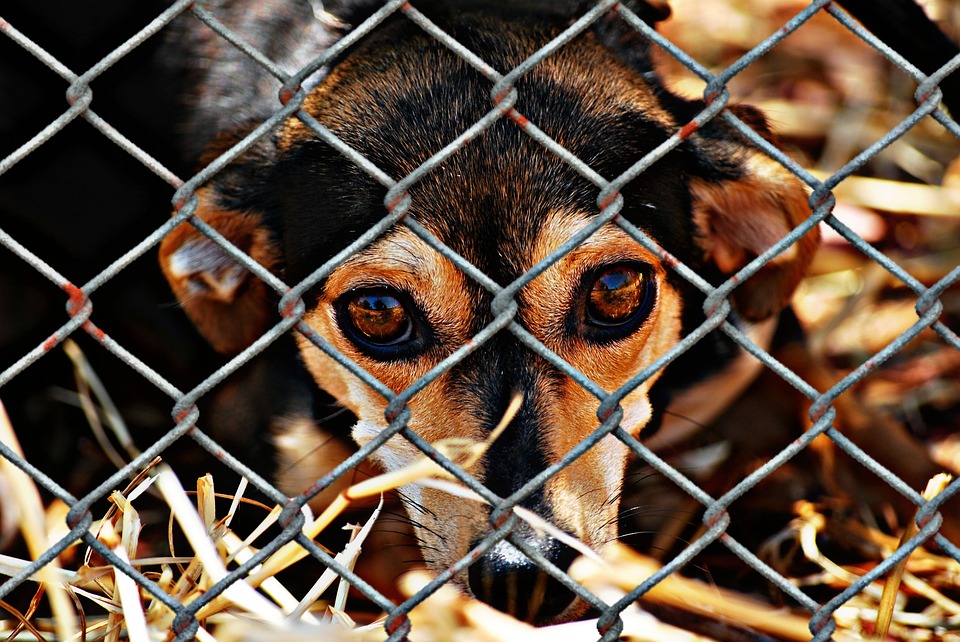Continua la protesta in tutto il mondo contro il festival di carne di cane Yulin
Recentemente è reso noto che il governo cinese avrebbe vietato la vendita di carne di cane, durante il festival annuale di carne di cane di Yulin. Questo è accaduto dopo le proteste di massa a livello globale di cittadini preoccupati, attivisti locali e altri gruppi tramite, tra le altre, petizioni e social media. Anche la popolazione cinese è sempre di più in rivolta. Da un sondaggio cinese di varie organizzazioni per i diritti degli animali risulta che la grande maggioranza degli intervistati è per un divieto sul festival infame di Yulin e persino che mangiare carne di cane dovrebbe essere abolita del tutto. Il Partito per gli Animali invita i suoi sostenitori a firmare la petizione contro la vendita di carne di cane.
Durante l’annuale festival di Yulin, il 21 giugno, circa 10.000 cani sono macellati solo per essere mangiato dai frequentatori di festival. Contrariamente a quanto spesso si afferma, non è una festa tradizionale, ma c’è solo dal 2009. Molti dei cani sono animali domestici rubati. Inoltre, gli animali sono spesso malati e feriti, e il commercio di carne di cane, dato il rischio della rabbia e del colera, è una seria minaccia per la salute.

Associazioni animaliste segnalano che, anche se le autorità cinesi hanno promesso di agire duramente contro la vendita di carne di cane al festival, il divieto non è quasi per niente mantenuto. Pertanto, il Partito per gli Animali, insieme ad altre organizzazioni, ha invitato i suoi sostenitori a continuare a firmare la Avaaz-petizione contro Yulin. Così la pressione sul governo cinese rimane alta per far rispettare veramente il divieto. Dal momento dell’appello da parte del Partito per gli Animali il 28 giugno, più di 4.000 sostenitori del Partito per Animali nei Paesi Bassi hanno già firmato la petizione. In tutto il mondo, sono già stati raccolti milioni di firme.
Attivisti cinesi sottolineano che il divieto di carne di cane durante Yulin è un buon passo, ma non dobbiamo dimenticare che c’è un problema più grande di tutti i giorni, quello del commercio carne di cane in tutto il paese. Tale problema richiede secondo gli attivisti per un approccio olistico e coerente.
It was recently reported that the Chinese government was to ban dog meat sales at the annual Yulin Dog Meat Festival, as a result of mass protests by concerned citizens, local activists and other groups throughout the world, through petitions and social media. In China too, more and more people are rebelling. A Chinese survey of several animal rights organisations shows that the vast majority of respondents are in favour of a ban on the notorious Yulin Festival and on eating dog meat altogether. The Party for the Animals calls upon its members to sign the petition against the sale of dog meat.
At the annual Yulin Festival on 21 June, around 10,000 dogs are slaughtered and eaten by visitors of the festival. Contrary to popular belief, the Yulin festival is not a traditional event but one invented in 2009. Many of the dogs are stolen pets. As many of the animals are seriously ill or injured, the dog meat trade poses a serious threat to public health considering the risk of rabies and cholera.

Animal welfare organisations report that, despite promises of the Chinese authorities to fight against the sale of dog meat, the ban is barely maintained. That is why the Party for the Animals and other organisations involved have called on their members to keep signing the Avaaz petition against Yulin, in order to put pressure on the Chinese government to uphold the ban. Since the Party for the Animals’ appeal of 28 June, over 4,000 supporters of the Dutch Party for the Animals have already signed the petition. Worldwide, millions of signatures have been collected.
Chinese activists point out that although the ban on dog meat sales at the Yulin Festival is a good step forward, we must not forget about the even bigger issue of the daily dog meat trade throughout the entire country. This problem needs a holistic and consistent approach, according to the activists.